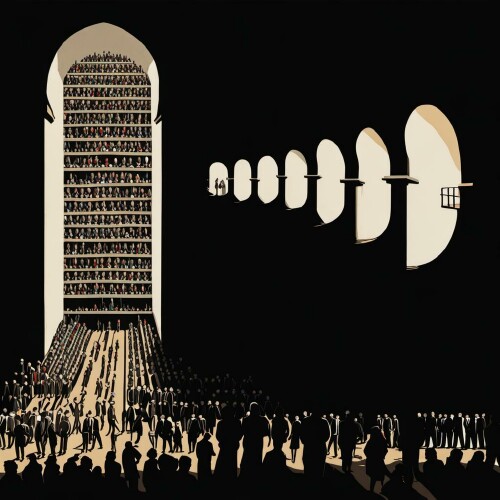
This radio series, (Silos,) addresses many issues at the same time…but what stands out to me are the opposing conceptions of educational technology.
Author Anita Sullivan writes about the imaginative work of world-building that provides the background to this story.
The silos are places where people “sleep”, supposedly as a way of reducing their environmental footprints. While put into some kind of hibernation, they are subjected to “playlists” which are meant to be educational…but which some people regard as manipulation or propaganda. Indeed, the same technology is used as a custodial sentence.
Inside the silos, an alternative is developing. In place of the centralised “disciplinary” model of education, they are turning off the “playlist”… Leaving space for a collective bottom-up network of problem-solving and exchange of information.
The story finishes with an attempt to break into a silo and link it up with other silos around the world. As always, the tantalising part is what happens next… not the revolution itself, but the new structures and rituals for another kind of society. The play supposes a kind of technically-enhanced telepathy where everyone participates. Individuals can find each other with greater ease than in the real world. But how is this an alternative to the already existing www ? Are there some advantages of telepathy over reading? I don’t think Sullivan imagines problems being solved in some purer realm beyond language, wouldn’t that be a strange thing for a radio playwright to do… ?
This post by Stephen Downes describes a paper (it’s open access in the journal “Nature”) about how that kind of large network might come to exhibit an intelligence of its own. In the authors’ terminology this means “adaptive behaviour in a new problem space”. I can see how this can arise in an evolutionary process where most of the mutations fail. Indeed, our urban-industrial civilisation does seem to be mutating quite quickly at the moment… but to get an evolutionary dynamic you would need lots of parallel experimental civilisations. Many of them could be expected to fail spectacularly.
